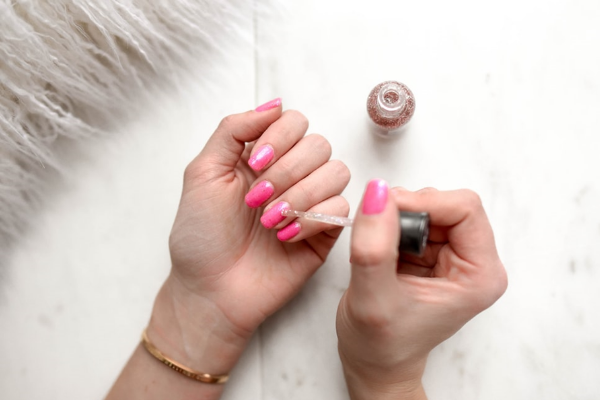Is lockdown exposing how commodified the term really is?
Remember… convincing everyone that you are ‘legitimately blonde’? Being embarrassed, nay horrified, if those pesky roots sprouted any further than a fingernail? Remember spontaneously getting your eyebrows threaded or your nails painted, simply because you had time to kill before happy hour started? I do. I would lavishly indulge in all of the above and justify it to myself under the guise of ‘self-care’.
The writer and activist, Audre Lorde, spoke about self-care as a radical act, but the term has been hijacked by brands looking to sell us a bunch of stuff to make us feel better. Weekly manicures have become self-care, so have bath oils, new shoes, new handbags, new clothes – effectively any treat you want justification for.
I was as guilty as anyone (probably more) of embracing this commodified concept. If I felt stressed, I would buy myself an expensive lunch. If I felt sad, I would browse around the women’s wear section in Selfridges and inevitably walk out with something I didn’t need nor particularly liked. In order to make myself feel like a fully functioning grown-up, I would make sure my hair was effortlessly done, slather layers of product on my face like a glazed donut and moisturise diligently. It was an entirely self-centred enterprise that did give me a lot of pleasure, in the short term.
But now in this strange new world… all the shops are shut, the streets are eerily deserted, the nail salons are out of action, and kitchen scissors have replaced hairdressers. But then what’s the point of making an effort when your only plan is with your sofa? Many of the self-care techniques I used to employ now seem pointless or are strictly out of bounds. And to be honest the in-home equivalents don’t entice me. Fermented yogurt facemask anyone?
So we’ve been forced to reassess what the term ‘self-care’ really means. Some people might put makeup on or wear nice clothes and I respect that, as I firmly pull a hideous coral cashmere jumper, stained with toothpaste, over my head. Others might go for long runs, choregraph complex dance routines, whip up Ottolenghi inspired feasts or try their hand at baking sourdough. I admit, I have jumped on the bread-bandwagon, and thus far have only managed to produce a brick so dense it could cause bodily harm. I should stick to fairy cakes.
The reality is many people are dialling back their materialistic obsessions and reverting to simpler, purer pleasures. We’re seeing the return of arts and crafts, 1000-piece puzzles, photo albums and board games. If self-care is really about what soothes and nourishes the soul, then something as simple as having eggs for breakfast, supporting a small local shop or helping a neighbour undoubtedly counts.
My love of lotions and potions has certainly not vanished – it’s just on a temporary sabbatical and may well return with even more force and vigour when we’re out of ‘All This’. But it is interesting to see what really counts as self-care when we’re forced to shut commodification out.
So what are the implications after the virus subsides? I predict 3 scenarios:
Brands responsible for the commodification of self-care will adopt more wholesome messaging: If there is one thing we’ve been forced to learn during this period, it’s how to self-soothe without hedonistic distractions. Painting instead of pints, reading instead of raving, and sewing instead of sex, drugs and rock ‘n’ roll. There is every chance people will continue to employ these less materialistic, cheaper and infinitely more nourishing self-care techniques to soothe themselves, instead of immediately reverting back to past indulgences. If that is the case, brands would be wise to tailor their messaging towards this shift in attitude and dial back materialistic tones.
All the pent-up spending power will make brands greedy: Alternatively, these weeks of restriction will make individuals crave hedonistic indulgences even more than before. Think of an elastic band being wound up and then springing free. Brands may well latch on to the sweet release and the desire to spend and indulge excessively by purposefully driving the materialistic face of self-care to new heights, in order to make up for lost profit. Many business decisions made post-corona will undoubtedly be clouded by dollar signs in the eyes; why would self-care brands be any different?
Brands will shrewdly tread in between: This may be wishful thinking, but my hope is both consumers and brands alike will embrace the benefits of lockdown and carry them forward into their new routines and marketing strategies. But at the same time, I hope both will also seek to make up for lost time and take full advantage of the freedoms we are temporarily sacrificing in intuitive and intelligent ways. Let’s see what happens.
For more information or suggestions, contact amber.williams@thevalueengineers.com


